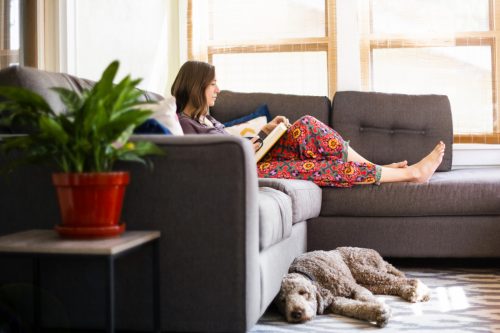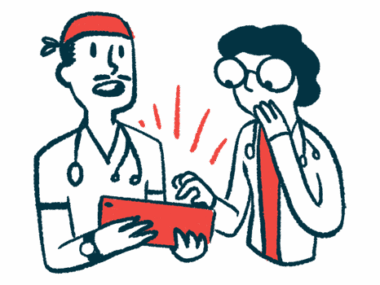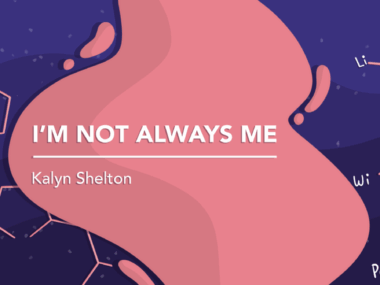3 Ways I’m Reclaiming My Joy While Living With Hepatic Porphyria
Written by |

Like many people with painful chronic illness, I struggle with my mental health.
This morning, simply getting out of bed took a lot out of me because I was tired from a restless night. Then, as my wheels got turning, I experienced the onslaught of dread that accompanies any upticks in acute pain. In a split second, my negative thoughts evoked anxiety on a one-way ticket into a deep shame spiral.
This is not a thought pattern I’d wish on anyone. In fact, it’s something I’m actively working through because acute intermittent porphyria (AIP) will steal my joy if I let it.
When I was diagnosed with chronic illness a few years ago, I noticed how easy it was to dwell on negative experiences and forget the positive occurrences in my day. Turns out, this concept is evolutionary science. Researchers call it “negativity bias,” and the fight, flight, or freeze response it can provoke is what kept ancient humans alive. That last bit is important for me to remember because even though AIP has some scary symptoms, it’s not like I’m being chased down by sabertooth tigers. There’s no need for me to be on edge and it’s not helpful to lose myself in hopeless thoughts every day.
I recently wrote about the chasm between my mind and body. This disassociation is damaging to my mental health and makes it hard to live in the moment. I can’t change my genetic mutation or time travel to moments in the past that might make my present more bearable, but I can choose to manage my negative thoughts so they don’t influence my feelings. Here are a few ways I am reclaiming my joy.
Faking happiness
When I was in my 20s and struggling with depression, my therapist advised me to act as if I were thrilled with my life. Immediately after starting my “fake happiness” experiment, I realized how much more enjoyable life is when I don’t take things in life so seriously. Years later, I have built off this concept. I surround myself with positive people who enrich my life. I laugh as much as possible, read light fiction, and play all kinds of games with friends. I also remind myself that I’m a person living with a full-time illness, and when I can embrace this identity, it helps me lift the shame.
Journaling my joy
When the grief over my hepatic porphyria diagnosis was fresh, I read Sheryl Sandberg and Adam Grant’s book “Option B: Facing Adversity, Building Resilience, and Finding Joy.” It inspired me to start a joy journal.
I love the ritual of daily writing, so I bought a lined notebook and a set of colorful felt-tipped pens that felt good between my fingers. Some days, a list of joy was easy to define. Perhaps it was a moment at the park with the kids or a humorous interaction with my nurses. Other days, all I could find to journal on was my first sip of freshly ground coffee in the morning.
By focusing on these joyful experiences, I wasn’t thinking about my pain. In the moment, I wasn’t grieving for a life lost or fretting about medical treatments. The more I journaled on my joy, the more I recognized and began to appreciate it day to day.
Meditating my way
Long before my battle with AIP dominated my life, I had a goal of daily meditation. Despite apps like Headspace that made it easy, I found meditation was a difficult practice to maintain. After chronic illness pulled the rug out from under me, sitting in solitude and turning inward was a source of stress, fear, and anxiety. Once I slowed down, I could hear how loudly my body was screaming in pain. I needed to rethink how I meditate.
A few weeks ago, I made a commitment for a 30-45-minute daily meditation. I am halfway through a mindfulness-based stress reduction course, which I am fortunate to be taking on scholarship through my health system. I practice either a body scan or mindful movement meditation every day, and on Mondays I meet virtually for two and a half hours with a cohort of more than a dozen people living in various stages of serious illness.
Through this class, I am learning to turn towards the hurt and examine the sensations in my body without judgment. By noticing my pain, I am acknowledging my body and redefining my relationship with it.
Living with chronic illness means the simple act of getting out of bed some mornings will be hard, painful, and triggering. Through reclaiming our joy, we can learn to be intentional with internal monologues before our heads even leave the pillow.
***
Note: Porphyria News is strictly a news and information website about the disease. It does not provide medical advice, diagnosis, or treatment. This content is not intended to be a substitute for professional medical advice, diagnosis, or treatment. Always seek the advice of your physician or other qualified health provider with any questions you may have regarding a medical condition. Never disregard professional medical advice or delay in seeking it because of something you have read on this website. The opinions expressed in this column are not those of Porphyria News or its parent company, Bionews, and are intended to spark discussion about issues pertaining to porphyria.







Leave a comment
Fill in the required fields to post. Your email address will not be published.